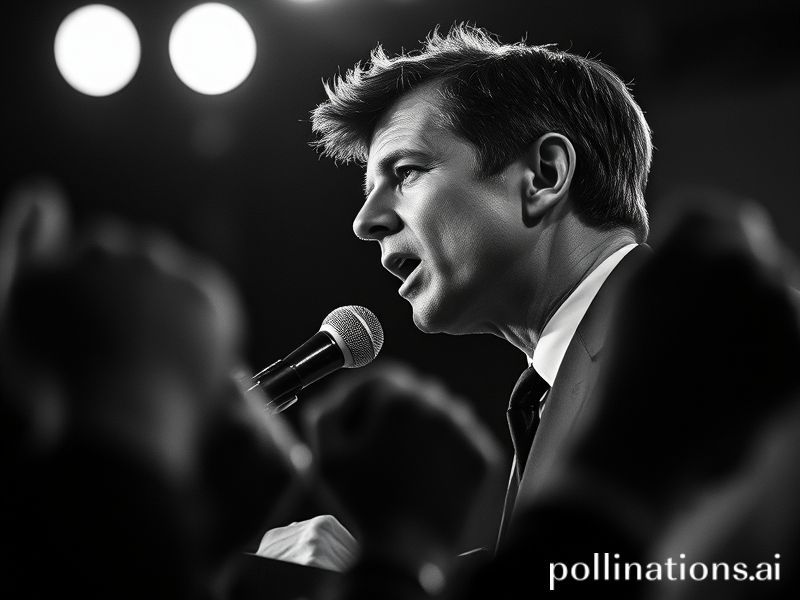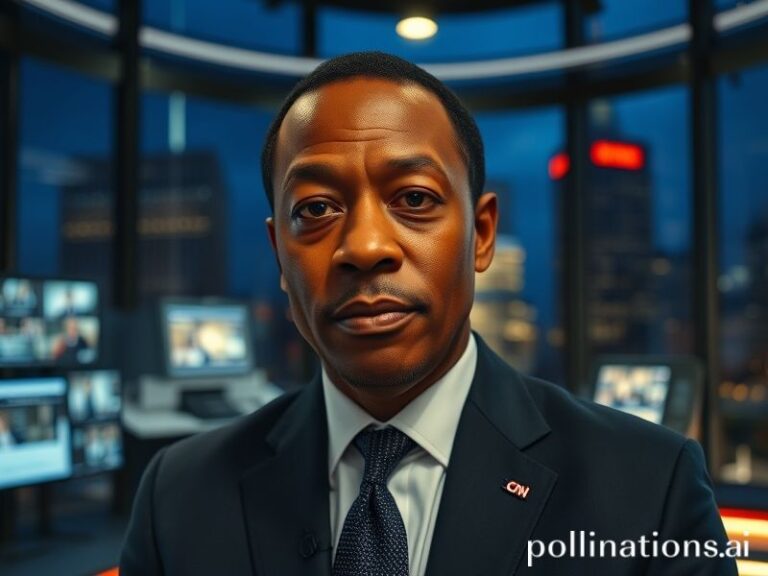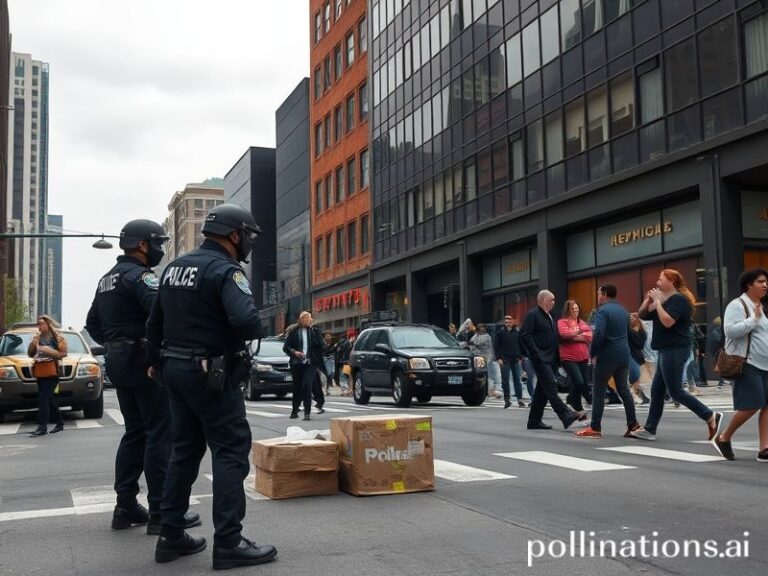RFK Jr.’s Raspy Voice Is Now the World’s Favorite Acoustic Weapon of Distrust
RFK Jr.’s Voice Isn’t Just Raspy—It’s the New Global Soundtrack to Distrust
By Our Correspondent Somewhere Over the Atlantic, Wondering If the Cabin Air Is Also a Conspiracy
The first time you hear Robert F. Kennedy Jr. speak, you think your headphones have slipped into a lo-fi ASMR remix of a 1930s tuberculosis ward. That gravel-coated baritone—equal parts chain-smoking poet and haunted sea lion—has become the world’s most unlikely diplomatic instrument. From Berlin protest marches to WhatsApp family groups in Manila, the rasp is instantly recognizable: the sonic watermark of our age of suspicion.
In Brussels, diplomats now play RFK Jr. clips at cocktail parties the way Cold War spooks once spun jazz records backward for hidden messages. The European Parliament’s cafeteria has started selling “Kennedy Komfort Kaffee” served extra hot, so the steam masks the fact that half the staff are surreptitiously streaming his latest vaccine tirade. Meanwhile, in Lagos, bus drivers loop his interviews to keep passengers awake through traffic that moves slower than U.S. campaign finance reform. They swear the voice alone repels both malaria and tax collectors.
How did one man’s larynx become a transnational Rorschach test? Part of it is the timbre: a timbre that sounds like it’s been marinated in FDA warning labels and left to ferment in a 5G tower. Part of it is the content: a greatest-hits album of every plotline too spicy for Netflix. But mostly it’s the context. In a planetary economy where trust is scarcer than semiconductors, the voice scratches the itch we didn’t know we had—the desire to be simultaneously soothed and scandalized.
In the Global South, RFK Jr.’s rasp is piped into yoga studios that promise “detox from Western neoliberal frequencies.” In India, Bollywood producers have autotuned it into a dance track titled “Meri Dava Ya Tera Drama?” (“My Medicine or Your Drama?”), which debuted at #3 between two breakup anthems. In São Paulo, street artists stencil the waveform of his voice onto overpasses, tagging it with the Portuguese phrase “Confie, mas Verifique com Tosse”—“Trust, but Verify with a Cough.” Even the Taliban, never ones to miss a branding opportunity, reportedly considered using the voice for nighttime radio broadcasts before deciding it was “too secular, but intriguingly doom-laden.”
Of course, the establishment is not amused. The World Health Organization quietly commissioned a study titled “Acoustic Pathways of Misinformation,” which concluded that lower vocal frequencies “correlate with increased listener retention of unverified claims.” Translation: Barry White could have sold the moon landing hoax. The WHO recommended counter-programming involving sopranos reciting peer-reviewed abstracts, but Spotify’s algorithm buried the playlist somewhere between whale songs and Estonian death metal.
And yet the voice persists, crossing borders like a passport-less fugitive. In Kyiv, bomb-shelter DJs splice it into techno sets to keep morale ironic. In Tokyo, salarymen pay for “Kennedy Karaoke” booths where they rasp about mercury in sushi. Even China, which normally censors anything raspier than a kazoo, allows carefully clipped snippets for “educational purposes,” subtitled with disclaimers longer than the Great Wall itself.
The broader significance? Simple: we’ve entered the age where timbre is policy. Soft power used to mean jazz diplomacy and blue jeans; now it’s vocal fry delivering hard truths about Big Pharma. Governments can ban accounts, throttle bandwidth, or label tweets, but they can’t embargo a set of vocal cords that sound like they’ve been gargling gravel and subpoenas. The voice is the ultimate dark web: decentralized, borderless, and impossible to patch.
So next time you hear that trademark croak wafting from a cousin’s phone in Quito or a taxi radio in Cairo, remember: it’s not just RFK Jr. talking. It’s the sound of a planet deciding, one bronchial wheeze at a time, that credibility no longer comes from credentials—it comes from the convincing impression that someone has seen the fine print and coughed blood on it.
Sleep tight. Or at least invest in lozenges.







